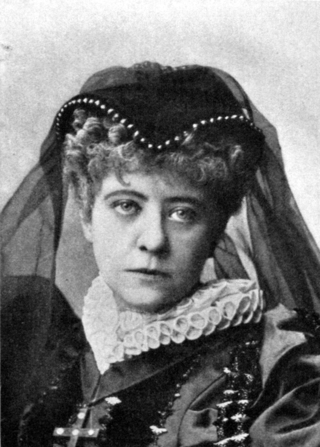
Adele Sandrock was a German actress. After a successful theatrical career, she became one of the first German movie stars.
Die Försterchristl is an operetta in three acts by Georg Jarno to a libretto by Bernhard Buchbinder. It premiered on 17 December 1907 at the Theater in der Josefstadt in Vienna. Three years later, its English version by librettist Leonard Liebling had a run of 64 performances at Broadway's Herald Square Theatre in 1910/11 under the title The Girl and the Kaiser. The work is known in English as The Girl and the Kaiser, The Bohemian Dancer, The Forester's Daughter and in French as La petite amie de sa majesté and Christelle et l'empereur.

The Mistress is a 1927 German silent drama film directed by Robert Wiene and starring Edda Croy, Harry Liedtke and Eugen Burg. It was based on a play by Alexander Brody. It was the first film Wiene made after returning to Germany after two years working in Austria, although the film's location shooting was done in Vienna, where the story is set. The interiors were shot at the Marienfelde Studios of Terra Film in Berlin.
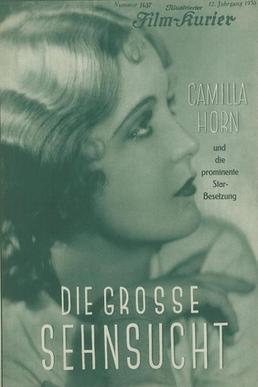
The Great Longing is a 1930 German comedy film directed by Steve Sekely in his directorial debut and starring Camilla Horn, Theodor Loos, and Harry Frank. It was shot at the EFA Studios in Berlin. The film's sets were designed by the art directors Hans Sohnle and Otto Erdmann. It was distributed by the German branch of Universal Pictures.

Fräulein Else is a 1929 German silent drama film directed by Paul Czinner and starring Elisabeth Bergner, Albert Bassermann and Albert Steinrück. It was based on the 1924 novella of the same name by Arthur Schnitzler. Bergner had previously played her role on stage to great acclaim. However, it was felt that the film was hindered by being silent given the strength of the story's dialogue.

The Little Napoleon is a 1923 German silent historical comedy film directed by Georg Jacoby and starring Egon von Hagen, Paul Heidemann and Harry Liedtke. It depicts the life and amorous adventures of Jérôme Bonaparte, the younger brother of Napoleon, who installed him as King of Westphalia.

Without Meyer, No Celebration is Complete is a 1931 German comedy film directed by Carl Boese and starring Sig Arno, Ralph Arthur Roberts and Dina Gralla. Boese made a number of films featuring Jewish comedians during the Weimar Era.
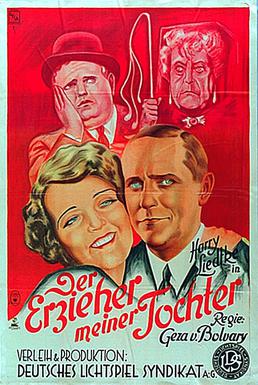
My Daughter's Tutor is a 1929 German silent comedy film directed by Géza von Bolváry and starring Harry Liedtke, Dolly Davis, and Charles Puffy. The plot closely mirrored that of Ernst Lubitsch's The Oyster Princess. It was shot at the Tempelhof Studios in Berlin. The film's art director was Robert Neppach.
Father and Son is a 1929 German silent film directed by Géza von Bolváry and starring Harry Liedtke, Rolf von Goth, and Charles Puffy. The film's art direction was by Robert Neppach and Erwin Scharf.
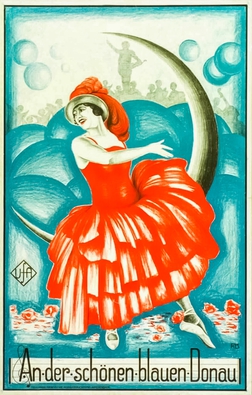
The Blue Danube is a 1926 German silent romance film directed by Frederic Zelnik and starring Harry Liedtke, Lya Mara and Hans Junkermann. The film has been described as a paean to Austria. It was shot at the Staaken Studios in Berlin. The film's art direction was by Andrej Andrejew and Jacek Rotmil who designed the sets.
Misled Youth or Youth Gone Astray is a 1929 German silent drama film directed by Richard Löwenbein and starring Fritz Alberti, Erna Morena, and Dolly Davis. It was one of a number of enlightenment films during the Weimar Era that addressed the issue of juvenile delinquency. The film's art direction was by Hans Jacoby.
Rhenish Girls and Rhenish Wine is a 1927 German silent film directed by Johannes Guter and starring Xenia Desni, Jack Trevor and Elisabeth Pinajeff. The film's art direction was by Jacek Rotmil.
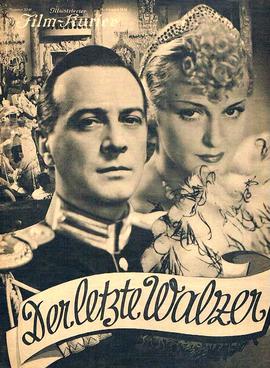
The Last Waltz is a 1934 German operetta film directed by Georg Jacoby, and starring Ernst Dumcke, Max Gülstorff, and Iván Petrovich. It is based on the 1920 operetta The Last Waltz by Oscar Straus. It was remade in English in 1936.
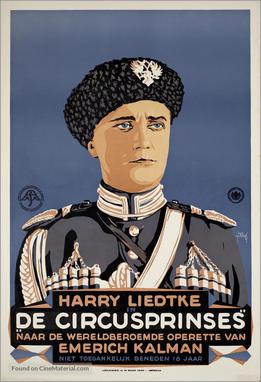
The Circus Princess is a 1929 German silent film directed by Victor Janson. It is an adaptation of the operetta Die Zirkusprinzessin. It was shot at the Staaken Studios in Berlin. The film's sets were designed by the art directors Botho Hoefer and Hans Minzloff
The Spinning Ball is a 1927 German silent film directed by Erich Schönfelder and starring Edda Croy, Harry Liedtke and Erna Morena. It was shot at the Staaken Studios in Berlin.

The Fate of a Night is a 1927 German silent film directed by Erich Schönfelder. The film's sets were designed by the art director Ernst Stern.
Does a Woman Have to Become a Mother? or Paragraph 144 is a 1924 Austrian-German silent film directed by Georg Jacoby and Hans Otto and starring Harry Liedtke. Originally intended as a pro-abortion film, by the time it was released it was advocating the opposite view.
Revolt in the Batchelor's House is a 1929 German silent comedy film directed by Manfred Noa and starring Sig Arno, Kurt Gerron and Trude Hesterberg.
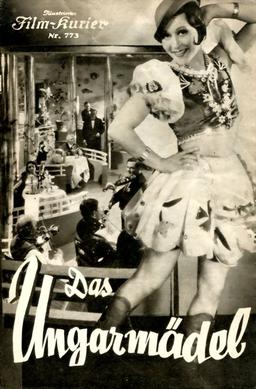
Gypsy Blood is a 1934 German comedy film directed by Charles Klein and starring Adele Sandrock, Georg Alexander, and Erik Ode. It was released by the German subsidiary of Universal Pictures. In Austria it was known by the title Das Ungarmädel.

The Love of a Queen is a 1923 German silent historical drama film directed by Ludwig Wolff and starring Harry Liedtke, Henny Porten and Walter Janssen. It is based on the eighteenth century affair between the Danish Queen Caroline Matilda and the court physician Johann Friedrich Struensee.













